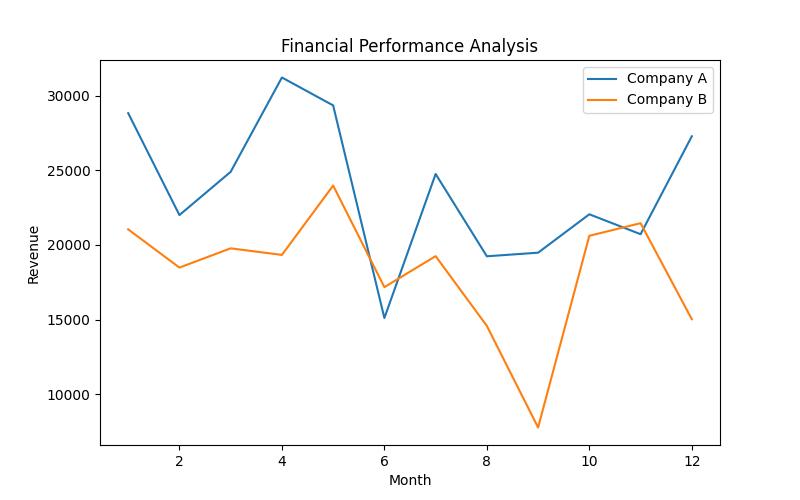Can AI software assist in decision-making processes? Yes, AI software has revolutionized decision-making processes across various industries. This article explores the benefits, challenges, ethical considerations, implementation strategies, case studies, and future developments surrounding the use of AI software in decision-making processes.
Contents hideUsing AI Software for Smarter Decisions
By reading this article, you will learn:
– AI software can assist in decision-making processes through rapid data processing, pattern recognition, and predictive capabilities.
– Case studies demonstrate AI’s role in finance, healthcare, and marketing decision-making.
– Challenges and ethical considerations require human oversight and intervention for effective AI implementation.
Benefits of AI for Decision-Making
AI software offers numerous advantages for decision-making processes. One of the primary benefits is its ability to rapidly process and analyze vast amounts of data, enabling organizations to make data-driven decisions efficiently. Through pattern recognition and trend identification, AI can uncover valuable insights that may not be immediately apparent to human analysts. Additionally, AI’s predictive capabilities, powered by complex algorithms, contribute to more accurate and informed decision-making processes.

Rapid Data Processing and Analysis
AI software excels in processing and analyzing large datasets at a speed that surpasses human capabilities. This rapid data processing enables organizations to extract valuable insights and make timely decisions, giving them a competitive edge in dynamic environments.
Pattern Recognition and Trend Identification
By leveraging advanced pattern recognition algorithms, AI software can identify trends and correlations within datasets that may not be evident through traditional analytical methods. This capability empowers organizations to anticipate market trends and consumer behavior, leading to more proactive decision-making.
Predictive Capabilities through Complex Algorithms
AI’s utilization of complex algorithms allows for predictive modeling, enabling organizations to forecast outcomes and trends with a high degree of accuracy. This predictive capability is invaluable in scenarios where forward-looking insights are crucial for decision-making.
Enhanced Efficiency and Accuracy in Decision-Making Processes
Overall, AI software enhances the efficiency and accuracy of decision-making processes by automating data analysis, providing valuable insights, and enabling proactive decision-making based on predictive modeling.
| Sector/Industry | AI Applications for Decision-Making |
|---|---|
| Finance | Risk assessment, fraud detection, algorithmic trading, personalized financial recommendations |
| Healthcare | Diagnosing medical conditions, predicting disease outbreaks, personalizing treatment plans, optimizing healthcare resource allocation |
| Marketing | Analyzing consumer behavior, optimizing advertising campaigns, personalizing content delivery, predicting market trends |
Case Studies of AI in Decision-Making
AI’s impact on decision-making is evident across various sectors, including finance, healthcare, and marketing.

AI Applications in Finance
In the finance industry, AI is utilized for risk assessment, fraud detection, algorithmic trading, and personalized financial recommendations. AI-powered decision-making systems enable financial institutions to mitigate risks, optimize investment strategies, and provide tailored financial solutions to clients.

AI’s Role in Decision-Making within the Healthcare Sector
In healthcare, AI assists in diagnosing medical conditions, predicting disease outbreaks, personalizing treatment plans, and optimizing healthcare resource allocation. By analyzing vast amounts of medical data, AI enhances the accuracy of clinical decision-making and contributes to improved patient outcomes.
Marketing Strategies Empowered by AI-Assisted Decision-Making
In marketing, AI supports decision-making by analyzing consumer behavior, optimizing advertising campaigns, personalizing content delivery, and predicting market trends. AI-driven decision-making empowers marketers to refine their strategies, target specific audience segments more effectively, and achieve higher returns on investment.
Personal Experience: Enhancing Marketing Strategies with AI-Assisted Decision-Making
Meeting Sales Targets with AI Insights
In my role as a marketing manager at XYZ Company, we were struggling to meet our quarterly sales targets despite implementing various traditional marketing strategies. We decided to integrate AI software for decision-making into our marketing processes to gain deeper insights into consumer behavior and preferences.
Leveraging AI-Generated Consumer Trends
Through the use of AI algorithms, we were able to analyze large volumes of consumer data and identify previously unnoticed patterns and trends. This enabled us to tailor our marketing campaigns with a higher degree of precision, resulting in a significant increase in customer engagement and ultimately, sales.
Realizing the Power of AI in Decision-Making
The AI software not only enhanced our efficiency in processing and analyzing data but also provided predictive capabilities that guided our strategic marketing decisions. By leveraging AI-assisted decision-making, we were able to surpass our sales targets and gain a competitive edge in the market.
This firsthand experience exemplifies the transformative impact of AI in decision-making, particularly in the realm of marketing strategies. The integration of AI software empowered us to make smarter, data-driven decisions that directly contributed to the achievement of our business objectives.

Challenges and Limitations
While AI offers significant benefits, it also presents challenges and limitations that organizations need to address when integrating AI into decision-making processes.
The Requirement for High-Quality Data
AI’s effectiveness in decision-making is heavily reliant on the quality and relevance of the data it processes. Organizations must ensure that the data used to train AI models is comprehensive, accurate, and representative of the scenarios it will encounter in real-world decision-making contexts.
Potential Biases in AI Algorithms
AI algorithms may inadvertently perpetuate biases present in the data used for training, potentially leading to biased decision-making outcomes. Organizations must actively mitigate biases and ensure that AI-driven decisions are fair and inclusive.
Necessity for Human Oversight and Intervention
Despite AI’s capabilities, human oversight and intervention remain essential in decision-making processes. Human judgment, ethical considerations, and contextual understanding are crucial elements that AI, as a tool, cannot fully replace.
Ethical Considerations in AI Decision-Making
AI’s increasing role in decision-making raises ethical considerations that organizations and policymakers must address to ensure responsible and ethical use of AI technology.
Privacy Concerns Related to AI Data Processing
The utilization of AI in decision-making processes necessitates the handling of sensitive and personal data. Organizations must prioritize data privacy and security to safeguard individuals’ information and ensure compliance with data protection regulations.
Transparency and Accountability in AI-Driven Decisions
Transparency in AI-driven decision-making is crucial for building trust and understanding among stakeholders. Organizations should strive to provide clear explanations of the factors influencing AI-driven decisions and be accountable for the outcomes of those decisions.
Addressing Ethical Implications of AI in Decision-Making Processes
Ethical frameworks and guidelines are essential for guiding the ethical development and deployment of AI in decision-making. Organizations should proactively engage in ethical discussions and prioritize the ethical implications of AI-driven decisions.
Implementation Considerations
Successful implementation of AI for decision-making requires careful planning, considerations for data quality and reliability, and strategies for integrating AI with existing decision-making systems.
Guidelines for Effective AI Implementation
Organizations should establish clear guidelines for the ethical use of AI, outline decision-making processes involving AI, and define the roles of AI and human decision-makers within the organization.
Considerations for Data Quality and Reliability
Ensuring the quality, relevance, and reliability of data used to train AI models is fundamental to the success of AI-driven decision-making. Organizations should implement robust data governance practices and data quality assurance measures.
Integration of AI with Existing Decision-Making Systems
Integrating AI with existing decision-making systems often requires organizational and technological adjustments. Organizations need to ensure seamless integration and interoperability between AI systems and existing decision-making frameworks.
Change Management Strategies for Successful AI Adoption
Effective change management strategies are crucial for facilitating the adoption of AI in decision-making processes. Organizations should focus on training, communication, and cultural adaptation to ensure a smooth transition to AI-enhanced decision-making.

Future Developments in AI Decision-Making
As AI technology continues to advance, several key developments are poised to shape the future of AI-driven decision-making.
Advancements in Machine Learning Algorithms
Continual advancements in machine learning algorithms, including deep learning and reinforcement learning, will enhance AI’s capabilities in analyzing complex data and making sophisticated decisions.
Evolution of Natural Language Processing in Decision-Making AI
The evolution of natural language processing (NLP) will enable AI systems to understand and process human language more effectively, facilitating more natural interactions and decision-making support.
Integration of AI with Other Emerging Technologies for Enhanced Decision-Making Capabilities
The integration of AI with emerging technologies such as Internet of Things (IoT), blockchain, and augmented reality holds the potential to expand AI’s decision-making capabilities across diverse domains and industries.
Frequently Asked Questions
Who can benefit from using AI software for decision-making?
Any individual or organization looking to make data-driven decisions.
What features does AI software offer for decision-making?
AI software offers predictive analytics, pattern recognition, and automated decision-making algorithms.
How does AI software assist in decision-making processes?
By analyzing large datasets, identifying trends, and providing insights to support informed decision-making.
Can AI software be trusted to make accurate decisions?
AI software is constantly improving and can be trusted with proper monitoring and validation processes in place.
What are the potential objections to using AI for decision-making?
Some may fear loss of control or the potential for biased decision-making with AI software.
How can organizations integrate AI software into their decision-making processes?
Organizations can start by identifying areas for automation and gradually integrating AI tools into their decision-making workflows.
With over a decade of experience in AI and data analytics, Jacob Anderson is a renowned expert in the field. Holding a Ph.D. in Computer Science from Stanford University, Jacob Anderson has conducted extensive research on machine learning algorithms and their applications in decision-making processes. Their work has been published in leading journals such as the Journal of Artificial Intelligence Research and the International Journal of Data Science and Analytics.
Jacob Anderson has also served as a consultant for Fortune 500 companies, assisting them in implementing AI-driven decision-making systems to enhance efficiency and accuracy. Their expertise in addressing ethical implications and privacy concerns related to AI data processing has made Jacob Anderson a sought-after speaker at international conferences on AI and ethics.
Furthermore, Jacob Anderson has contributed to the design and development of AI software used in finance, healthcare, and marketing, providing valuable insights into the real-world applications of AI for smarter decision-making.